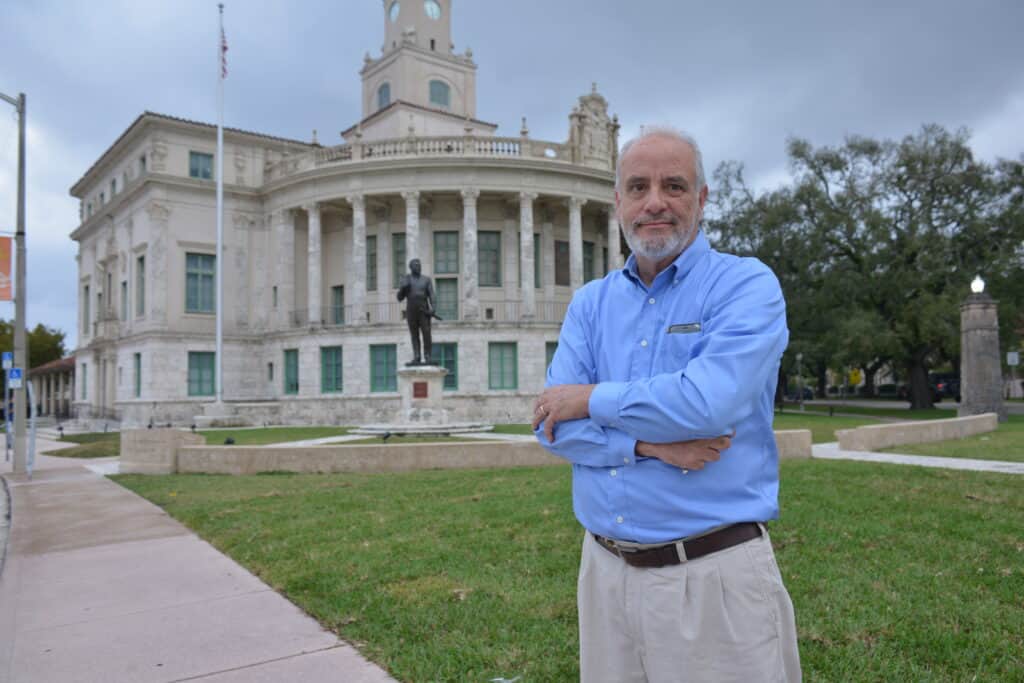Cases
Mas Canosa v. Coral Gables
CASE: Raul Mas Canosa v. City of Coral Gables
STATUS: Closed
NCLA ROLE: Counsel
COURTS HEARD IN: 3rd Fla. Cir., 11th Fla. Jud. Cir.
ORIGINAL COURT: Circuit Court of the 11th Judicial Circuit in and for Miami-Dade county, FL
DECIDING COURT: Florida Third Circuit Court of Appeal
OPENED: October 5, 2018
AGENCIES: City of Coral Gables | Florida | Florida Department of Law Enforcement | Florida Department of State
FOCUS AREAS:
CASE SUMMARY
Did we achieve our litigation objective? No, the court held that automatic license plate readers (ALPRs) deployed by the City of Coral Gables did not violate the client’s Fourth Amendment rights and that the City could rely on state guidance.
Court Outcome: The Circuit Court of the 11th Judicial Circuit in and for Miami-Dade County ruled that Coral Gables was allowed to continue using ALPRs to track and monitor its citizens.
Larger Impact: Administrative agencies have increasingly disregarded both the right to privacy contained in the Fourth Amendment and laws defining agencies’ legal authority. To reverse this trend, it is important that courts safeguard constitutional rights and prohibit administrative agencies from using guidance as a substitute for formal rulemaking.
Summary: Coral Gables is an upscale, historic municipality of Miami-Dade County, Florida. Residents take pride in their tree-lined streets and so they call it “City Beautiful.” But the city has now lined the streets with Automatic License Plate Readers (ALPRs). One resident is not happy about it and is taking the city and the state government to task.
The New Civil Liberties Alliance is suing the City of Coral Gables as well as the Florida Department of State (FDOS) and the Florida Department of Law Enforcement (FDLE), on behalf of long-time Coral Gables resident, Raul Mas Canosa. Mr. Mas Canosa says the city’s use of Automatic License Plate Readers, is a violation of Florida Law and Floridians’ Fourth Amendment rights to privacy.
The ALPR system tracks all vehicle traffic and stores the date for three years. It also allows law enforcement to pore over those records for security purposes, but the City has never identified a single crime that has been solved by this system.
There are currently 30 ALPRs strategically placed at nearly every major artery in the city, including I-95, scanning and recording the license plate number of every vehicle that passes, capturing the registered owner and the time, date and location of the vehicle when it was captured. To date, this single system have collected tens of millions of license plate images.
Aggregated, this data paints a revealing picture about a person. And it does so concerning the hundreds of thousands of people within the ALPR system.
FDLE and FDOS claim to have given permission for cities like Coral Gables to install their ALPR systems. But state administrative agencies cannot authorize such activity on their own initiative without formal administrative rules.
These agencies regulate through guidance, which is not how our government works. Ultimately, only Florida’s legislature has the power to approve the use of ALPRs. Allowing these agencies to police themselves subverts the democratic process entirely. Administrative entities don’t get to decide which constitutional rights Floridians may enjoy and municipalities like Coral Gables can’t hide behind big government.
More fundamentally, the city’s ALPR system purportedly authorized by FDOS and FDLE is simply unconstitutional under the Fourth Amendment to the United States Constitution and Article I, Section 23 of the Florida State Constitution.
RELEVANT MATERIALS
NCLA FILINGS
Decision of the Florida Third District Court of Appeal
April 26, 2023 | Read More
Appellant’s Reply Brief
July 12, 2022 | Read More
Appellants Initial Brief
December 13, 2021 | Read More
Amended Order on Parties Cross Motions for Summary Judgment
October 4, 2021 | Read More
Plaintiff’s Response to Defendant Florida Department of Law Enforcement’s Motion for Summary Judgment
June 23, 2021 | Read More
PRESS RELEASES
NCLA Appeals Case Contesting Data Collection of Automatic License Plate Readers in Coral Gables, FL
December 14, 2021 | Read More
NCLA Asks Miami Court to Stop Coral Gables from Using ALPRs to Violate Drivers’ Privacy Interests
June 2, 2021
Florida Judge Greenlights NCLA Lawsuit Alleging Unconstitutional Use of Automatic License Plate Readers
October 25, 2019
NCLA Video Shows Problem with Use of License Plate Readers
September 26, 2019
NCLA Sues City of Coral Gables, Florida Calling Its Use of Automated License Plate Readers ‘Nakedly Unconstitutional’
October 23, 2018
IN THE MEDIA
Big Brother grows alarmingly bigger, one automated license-plate reader at a time
The Washington Times
February 7, 2023
Coral Gables Resident Can Move Forward With Suing City Over Use Of Automated License Plate Readers
CBS 4 Miami
February 7, 2023
Orlando police seek access to massive database of license plates, concerning privacy advocates
February 7, 2023
Coral Gables use of license plate readers goes against Constitution, New Civil Liberties Alliance attorney says
Florida Record
February 7, 2023
NCLA client, Raul Mas Canosa sues City of Coral Gables for their use of ALPRs
Telemundo
February 7, 2023
CASE HIGHLIGHTS
Media Mention
February 7, 2023
Use of Automatic License Plate Readers In Jacksonville, FL
Source: CBS Jacksonville
Media Mention
February 7, 2023
NCLA client, Raul Mas Canosa sues City of Coral Gables for their use of ALPRs
Source: Telemundo
Press Release
December 14, 2021
NCLA Appeals Case Contesting Data Collection of Automatic License Plate Readers in Coral Gables, FL

